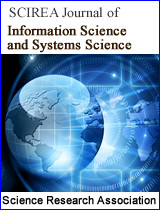Knowledge Representation and Knowledge ReasoningBased on the Aristotelian Modal Syllogism □AE◇E-4
DOI: 10.54647/isss120332 29 Downloads 225776 Views
Author(s)
Abstract
This paper firstly formalizes Aristotelian modal syllogisms from the perspective of knowledge representation, and then uses modal logic and generalized quantifier theory to prove the validity of the Aristotelian modal syllogism □AE◇E-4. Finally, making much of some rules and facts in first-order logic and the definitions of inner negation for Aristotelian quantifiers in generalized quantifier theory, at least the other 34 valid Aristotelian modal syllogisms can be derived by the validity of the syllogism □AE◇E-4 from the perspective of knowledge reasoning in artificial intelligence. The method is not only concise and elegant, but also universal for the study of other types of syllogisms. Undoubtedly, this study benefits natural language information processing.
Keywords
Aristotelian modal syllogisms; validity; knowledge representation; knowledge reasoning
Cite this paper
Liheng Hao,
Knowledge Representation and Knowledge ReasoningBased on the Aristotelian Modal Syllogism □AE◇E-4
, SCIREA Journal of Information Science and Systems Science.
Volume 8, Issue 1, February 2024 | PP. 48-57.
10.54647/isss120332
References
| [ 1 ] | L. S. Moss, Completeness theorems for syllogistic fragments, in F. Hamm and S. Kepser (eds.), Logics for Linguistic Structures, Mouton de Gruyter, Berlin, 2008, pp.143-173. |
| [ 2 ] | J. Endrullis, and L. S. Moss, Syllogistic logic with ‘most’, in V. de Paiva et al. (eds. ), Logic, Language, Information, and Computation, 2015, pp.124-139. |
| [ 3 ] | F. Johnson, Models for modal syllogisms, Notre Dame Journal of Formal Logic, Vol. 30, 1989, pp.271-284. |
| [ 4 ] | J. ?ukasiewicz, Aristotle’s Syllogistic: From the Standpoint of Modern Formal Logic (2nd Edition), Clerndon Press, Oxford, 1957. |
| [ 5 ] | S. McCall, Studies in Logic and the Foundations of Mathematics, Aristotle’s Modal Syllogisms, North-Holland Publishing Company, Amsterdam, 1963. |
| [ 6 ] | Thomason, S. K. Relational Modal for the Modal Syllogistic”, Journal of Philosophical Logic, Vol. 26, 1997, pp.129-1141. |
| [ 7 ] | F. Johnson, Aristotle’s modal syllogisms, Handbook of the History of Logic, Vol. I, 2004, pp.247-338. |
| [ 8 ] | M. Malink, Aristotle’s Modal Syllogistic, Harvard University Press, Cambridge, MA, 2013. |
| [ 9 ] | X. J. Zhang, Screening out All Valid Aristotelian Modal Syllogisms, Applied and Computational Mathematics, Vol 8. No. 6, 2020, pp.95-104. |
| [ 10 ] | P. R. Halmos, Naive Set Theory, Springer-Verlag, New York, 1974. |
| [ 11 ] | F. Chellas, Modal Logic: an Introduction, Cambridge University Press, Cambridge, 1980. |
| [ 12 ] | B. Chen, Introduction to Logic (4th Edition), China Renmin University of Press, 2020. (in Chinese). |
| [ 13 ] | S. Peters, and D. Westerståhl, Quantifiers in Language and Logic, Claredon Press, Oxford, 2006. |
| [ 14 ] | C. Zhang, Formal Research on Aristotelian Modal Syllogism from the Perspective of Mathematical Structuralism, Doctoral Dissertation, Anhui University, 2023. (in Chinese) |

